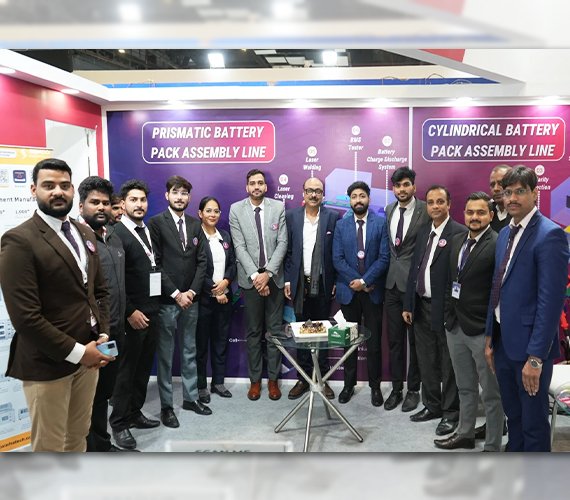The Open Circuit Voltage (OCV) Tester Machine is a vital piece of battery testing equipment widely used in the lithium-ion battery manufacturing industry. It measures the voltage of a battery without applying any load, offering critical data about the battery’s State of Charge (SoC), State of Health (SoH), and consistency.
By performing non-invasive voltage measurements, OCV testing ensures that batteries meet stringent performance and safety standards before deployment in electric vehicles (EVs), energy storage systems (ESS), and consumer electronics.
How an OCV Tester Machine Works?
- Battery Placement
The battery cell or module is carefully positioned in the OCV tester machine, aligning with precision probes for accurate contact. - Voltage Measurement
- The tester uses high-precision probes on the battery’s terminals.
- It captures the open-circuit voltage without drawing current.
- Measurements are highly accurate, often within millivolt precision.
- Data Processing
- The collected voltage is analysed against pre-set parameters.
- Deviations may indicate battery aging, manufacturing flaws, or inconsistencies.
- Sorting and Classification
- Cells are categorized based on their OCV readings.
- Batteries with similar voltage levels are grouped for uniform pack assembly.
- Non-conforming or defective batteries are flagged for further inspection.
Mechanism Behind OCV Testing
OCV testing works on the principle that a battery’s open-circuit voltage reflects its state of charge and overall health.
Key Features Include:
- High-Precision Electronics – Advanced voltmeters and microcontrollers deliver reliable readings.
- High Input Impedance Probes – Prevent current flow to ensure true OCV measurement.
- Automated Handling Systems – Support high-speed, automated battery testing and sorting.
- Temperature Compensation – Algorithms adjust readings for more accurate battery diagnostics.
Why OCV Testing is Crucial in the Battery Industry?
- Quality Assurance & Performance Validation
- Confirms that batteries meet design specifications.
- Detects early-stage failures, improving reliability in end-use applications.
- Detection of Manufacturing Defects
- Variations in OCV reveal issues like internal shorts or improper electrode coatings.
- Enhances production consistency and quality control.
- Battery Grading & Sorting
- Especially in EV battery pack assembly, closely matched cells are vital.
- OCV testers aid in binning cells with similar characteristics, improving system efficiency.
- Improved Safety & Reliability
- Abnormal readings could point to cells at risk of thermal runaway or electrical failure.
- Prevents unsafe batteries from entering the market.
- Essential for Formation & Aging Stages
- During initial charge-discharge cycles, OCV readings help monitor SEI layer formation.
- Useful in long-term battery degradation analysis.
Applications of OCV Testers Across Industries

- Electric Vehicles (EVs)
- Ensures only high-quality cells are included in packs.
- Enhances battery life and performance stability.
- Consumer Electronics
- Used in battery production for smartphones, laptops, etc.
- Guarantees uniform voltage performance and safety compliance.
- Energy Storage Systems (ESS)
- Verifies cell consistency for grid-scale battery systems.
- Promotes long-term reliability in energy storage.
- Aerospace & Défense
- Batteries used in mission-critical systems must meet tight performance tolerances.
- OCV testing uncovers risks before deployment.
Choosing the Right OCV Tester for Battery Production
When selecting an OCV tester, manufacturers should evaluate:
- Accuracy – Choose testers with millivolt-level precision.
- Automation – Automated models streamline large-scale battery manufacturing.
- Data Integration – Look for systems that support real-time data monitoring and logging.
- Compatibility – Ensure compatibility with different battery chemistries and formats.
Conclusion
The OCV Tester Machine plays an indispensable role in the battery manufacturing process, from quality control and cell grading to ensuring product safety and performance optimization. As demand for lithium-ion batteries in EVs, ESS, and electronics continues to rise, OCV testing remains a key enabler of reliable, high-performance battery solutions.




